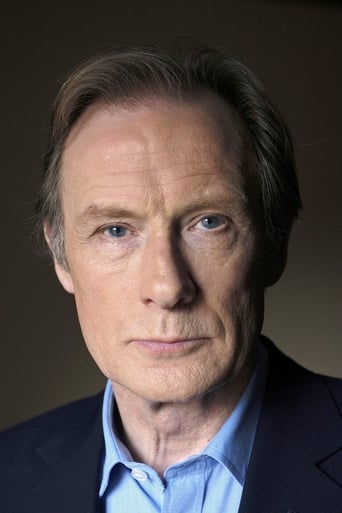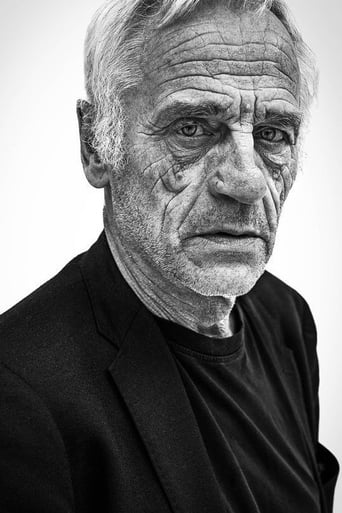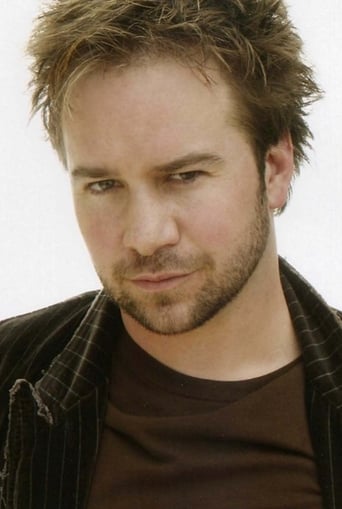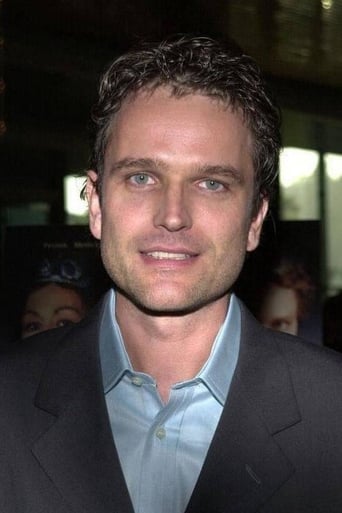AniInterview
Sorry, this movie sucks
Curapedi
I cannot think of one single thing that I would change about this film. The acting is incomparable, the directing deft, and the writing poignantly brilliant.
Marva
It is an exhilarating, distressing, funny and profound film, with one of the more memorable film scores in years,
Dana
An old-fashioned movie made with new-fashioned finesse.
Fat Freddy's Cat
I had read the book many years ago, and saw the movie for the first time last night. This is the story of the 1987 Boat Race (NOT 1986), and many who were close to those events have claimed the book inhabits something of a world of fiction. Regardless of whether or not that is true, the movie most certainly does, suffering acutely from two problems. The first is trying to dramatise a real-life story but not be sued out of existence by those portrayed as less than perfect in character, especially if they are Americans, and the second is needing actors to acquire specialist skills in a very short space of time. So the rowing scenes looked pretty awful, except for the long-range shots with real rowers, and they didn't even attempt to make sure they sourced equipment of the correct era. But to the non-rower, apart from Topolski and McDonald, everyone else seemed to be a cardboard cut-out of someone else. And then there were the accents. I have never met McDonald, but thought he was a Scot, not an upper-class Englishman. I have met Topolski, whose famous artist father Feliks was Polish, but left there ten years before Dan's birth. I think Dan was born in Britain, and certainly sounds as British as can be, so why cast a Belgian to play him with a Polish accent? I am a rower, and also a Cambridge man. Ultimately, since they were going to play so extremely fast and loose with the events of 1987, why couldn't they also depict a happy ending, with Oxford as gallant losers, but Cambridge well out in front????
Tazio Ratnayeke
I do not wish to contradict or to differ with any pundits on the cinematography of this movie and most certainly I have no wish to disagree with the views of fellow brothers of the blade.... yet there is an aesthetic side to this movie.Rowing, especially highly competitive rowing steeped in tradition, is a concept that can be understood only by those who have actually tasted the bitter gourd of defeat in a race and savoured its hard won victories. That is the essential of this movie.Indeed the mistakes are fallacious, and sometimes appalling pathetic, especially for those who know their blade work. However despite the blatant technical errors so obvious to a trained eye, as a story that inspires, this fills a much needed void.As a coxswain, its slightly different to the ones portrayed in the movie. Contrary to popular belief, in some parts of the world where there are traditional races like the Ox-Bridge where old rivals train eleven months of the year for just a single course down, we're not just dead weights in the boat. We actually have to do all the fitness that guys a foot taller and twice our weight have to do, only on one meal a day for weight reasons. Basically everything, ergo, weights, runs etc... except the water training. I found that the camaraderie that I shared with my crews, a thing all coxes will agree with me, was sadly missing in this movie. The 'coxing' in the final race was rather timid to say the least. Although I do confess, in the absence of something better this was a good phyche-up movie to watch before the races.What I did like about the movie is what it showed. The politics and the desperation to win is universal in every crew. The characters, heroes, villains and bystander can be related to by any oarsman. The best and most profound scene in the whole film, is not on the water, but at the meeting of the boat halls and the priest's take on what rowing for an institution is. That summarises the ethos for many of us. "We are servants to put in, not masters to take out. We owe that to all those before us and those who will come after us." In a Boat Races, to be second is to be last. It is a nightmare from the fall of the flag to the final line. This film shows what an oarsman goes through. Not as brutal as the reality but it is a glimpse never the less. Lines that seem cool yet speak volumes for those who have 'been there' are: "We need good men....not just good oarsmen..." "No one put a reserve sign on your seat...." "You can hear the boat sing...." "....make them feel like they came third...." "It's what we do to win the boat race...." What it shows, what no other film can show is the harmony of a team, and the determination and self sacrifice to win.For an oarsman who has faced the pain and the exhilaration of victory, this film will break a smile, not a cheer. Yet for the world that has not faced it, its a peek at an oarsman's world.Remis Insurgite!!!Tazio Ratnayeke
praemius
"Aawks-furrd". According to the introductory voice-over, this is where True Blue is set. It seems this was a token attempt not to completely alienate an American audience. For this is a story where poor misguided Oxford rowers draft in wicked Americans to help beat the apparently unstoppable Force Of Nature that is Cambridge University, which has been so unsporting as to actually win the last Boat Race. We are thus drawn into a picturesque but insane world where the motto is "six months' torture for a lifetime's pride". Unfortunately, we have to take part in some of the torture as rowers and coaches bitch at each other about training too much.
If the film could impart some of the ambition and dedication of top athletes to an ideal of winning (as does the book True Blue), then it would be exciting and disturbing. Similarly, if it could give an impression of their personal sacrifices it would remind us of how remarkable the Boat Race actually is in the sport of rowing. Unfortunately, the film falls between the two stools. It fails to show the personal lives of the squad beyond caricatures where bitterness and childish pranks are the norm, and therefore fails to create any sympathy with the characters; yet it also fails to do justice to the sport, showing us actors desperately trying to row as they bat up and down the boat, failing to make any impression on the boat speed except throwing up a lot of water at the camera. Rowing should be a sport that is smooth and beautiful, not rushed and convulsive.It is only when the film stops using actors and hires real rowers, drops the clunky script (who could forget such lines as "That's unconscionable!"?) and shows us an actual race that the director's skill can come through. He has been spending the rest of the film showing us beautiful but pointless shots of the sun rising over the dreaming spires of Oxford. In this way, the portrayal of the Boat Race itself almost makes up for the excruciating moroseness of the Blue Boat squad that has been flung at us for the last hour.In the end, if you want to see some nice shots of Oxford, see some well-built rowers in Lycra and hear a pseudo-"Chariots of Fire" soundtrack, you could watch this film. Or you could do a ten-thousand metre work session on a rowing machine, which would be shorter and less painful.
formica-2
Quite definitely the best film ever made about rowing (admittedly out of a poor field of competitors), 'True Blue' vividly conveys the striving for physical perfection and the stress of selection and training for the hardest rowing race in the word. The sheer bloody-mindedness, obstinacy and ambition needed to do well in such a sport spill over into the vicious personal relationships of this story, where the harsh sacrifices made mean that little quarter is given to those with whom you disagree and rival strongly opinionated tribes grow up, all with some right on their side. The bleak mood of the film is set straightaway with the picture of a lonely sculler training on a remote, snow-swept wind-blown loch. The film is visually poetic, using the real and truly beautiful venues used for the training in a matchless mix of colours and varying weather. Fairfax uses a good script, which nonetheless could have done with one more re-write to clarify the large cast of characters involved. The spectator comes away wondering also if some of the film's faults may not be due to back-pedaling over the real details of story to avoid legal action, which led to the changes of name of all but the two main characters. The soaring triumph of the spirit shown the final race in savage racing conditions is well worth waiting for, ably urged on by the sound track music. Some good cameo parts add to the overall pleasure of this film.




